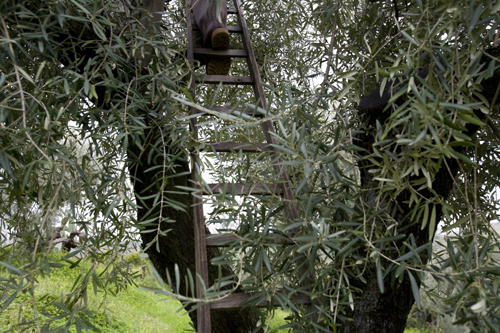 “Outdoors Day”: the annual Spring afternoon away from the stuffy classrooms and onto the track and ball fields, dreaded by nearly all underclassmen save for the dozen or so who savored a May ritual of barely disguised competition. We ran, we threw, we jumped. We “got some exercise,” the athletically challenged of us huffing and dripping awkwardly in the sun.
“Outdoors Day”: the annual Spring afternoon away from the stuffy classrooms and onto the track and ball fields, dreaded by nearly all underclassmen save for the dozen or so who savored a May ritual of barely disguised competition. We ran, we threw, we jumped. We “got some exercise,” the athletically challenged of us huffing and dripping awkwardly in the sun.
John D., doughy, soft in the hips, would rather have spent the afternoon in biology lab. He arrived limping into the school parking lot at eight a.m. sharp, injured by a rock discharged from the lawn mower he’d pushed through his family’s yard. He exaggerated his sore ankle, shifting from leg to leg, and his face — normally pinkish, as if a mild sunburn had taken permanent place — blazed with discomfort. We teased him from the start. Quaking, he pleaded his case repeatedly but he was never believed. The coincidence of having injured himself the day before Outdoors Day? Too much. Hoots and jeers drowned out his protestations for the rest of the banal afternoon. Poor John. Despite friendly times he and I shared in class and in the hallway, his face was locked in that excruciating moment common to adolescence: caught in a lie, a public revision of history that the next twenty-four hours (a lifetime in one’s mid-teens), a little maturity, a little self-esteem might have rendered obsolete.
Looking back, what remains speaks to randomness or to some sort of higher if obscure plan. That which we prize as the truth, we carry away from the stream dark and treasured in our pockets and caress, or try and crush, or buff unconsciously until it resembles something believable, understandable, comprehensible. That John’s particular minor fabrication has lingered in my mind for decades begs me to trust it as some sort of enlightened moment. I know why he woke up and planned the fake limp; I want to know why I can’t shake it. John has entered the fable. He’s become a literary figure. He’s become fabled. Does that mean that I invented him? He’s now fabulous. He’s now somewhere, not thinking of me.
But there he is, skulking around the perimeters of the track, kicking pebbles, alone, an hourglass Greek body hunched in the inescapable truth. He blew it; the lie didn’t take. I could have done the same thing. Somewhere in the present tense of the past John’s savoring the irony of injuring his ankle the day before certain athletic shame, or he’s limping away from some kind of candor. Into the fable he goes.
—
Joe Bonomo’s essays appeared recently in The Rumpus, Ancora Imparo, Junk: A Literary Fix, The Normal School, Defunct, and Quarter After Eight. His books include Conversations With Greil Marcus (forthcoming), AC/DC’s Highway to Hell (33 1/3 Series), Jerry Lee Lewis: Lost and Found, Installations (National Poetry Series), and Sweat: The Story of The Fleshtones, America’s Garage Band. He teaches at Northern Illinois University, and appears online at No Such Thing As Was.
Photo by Annie Agnone
